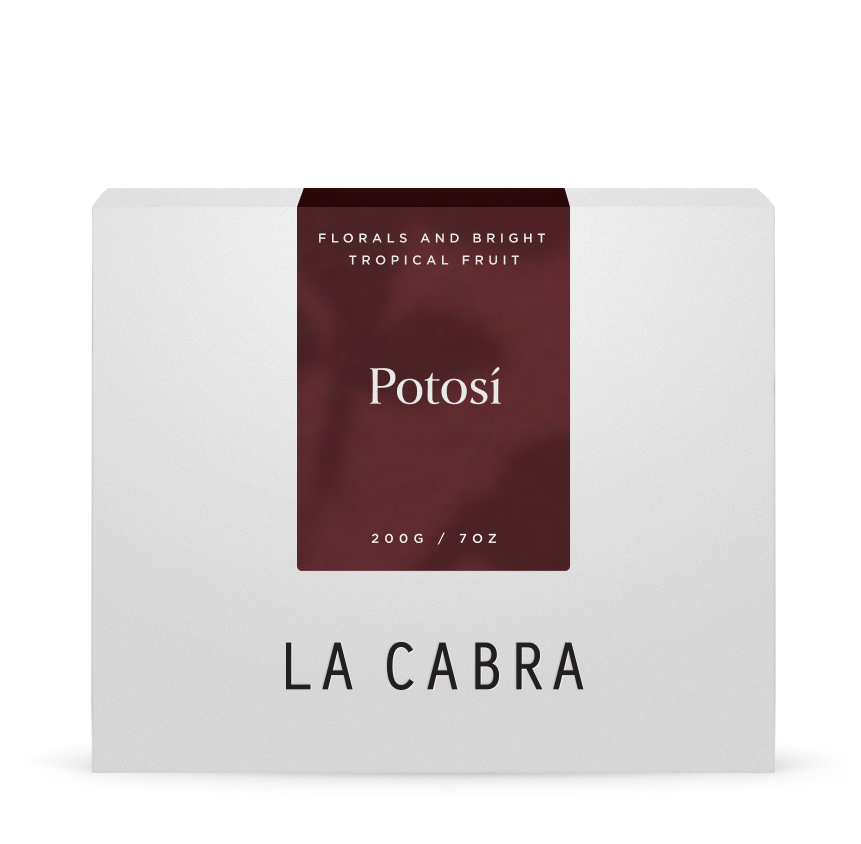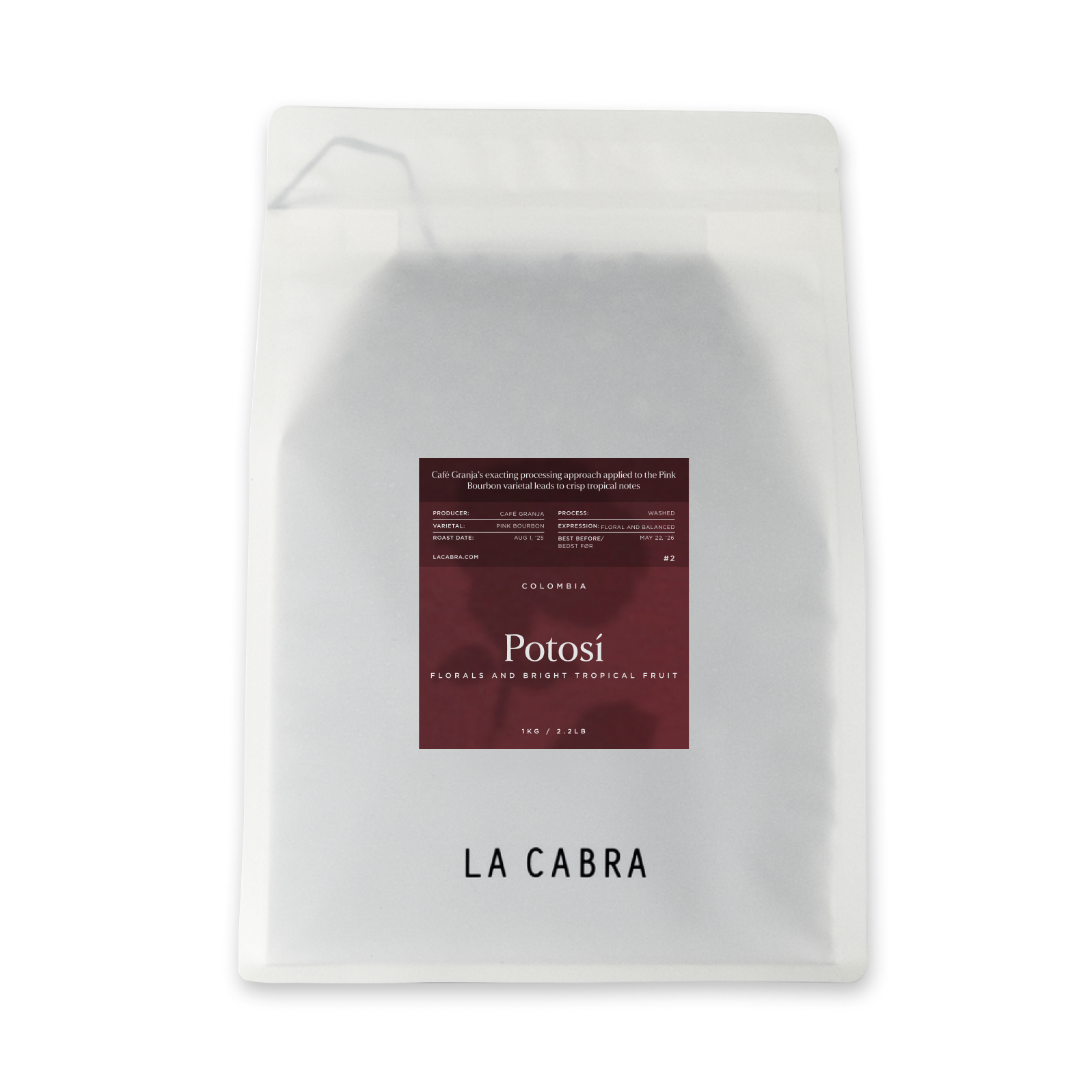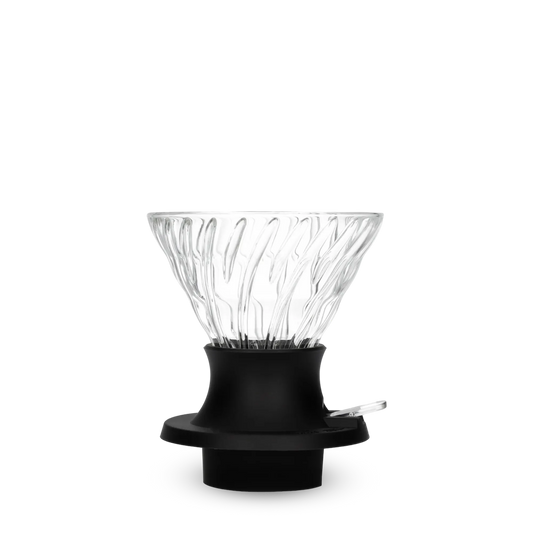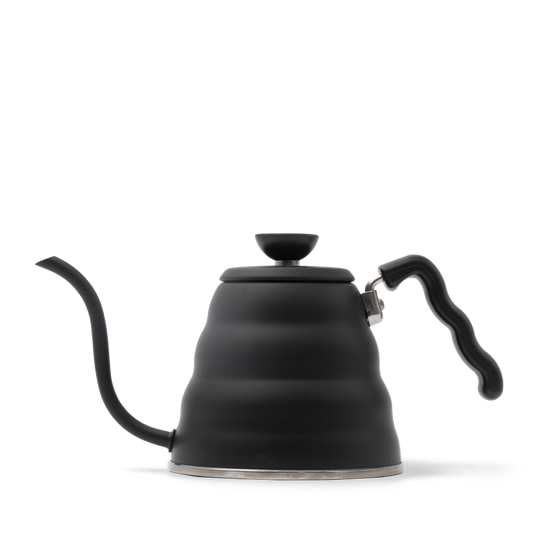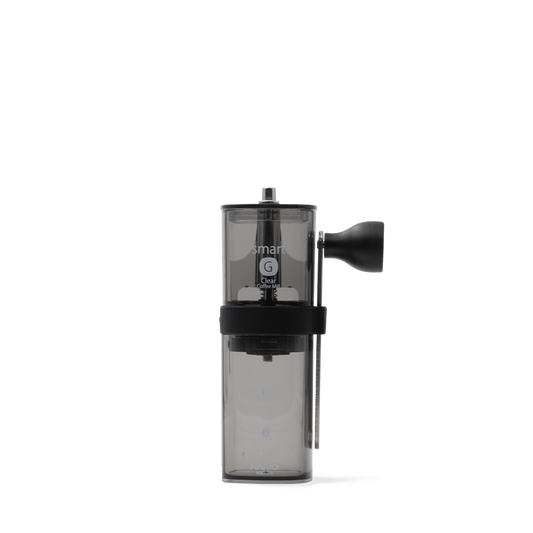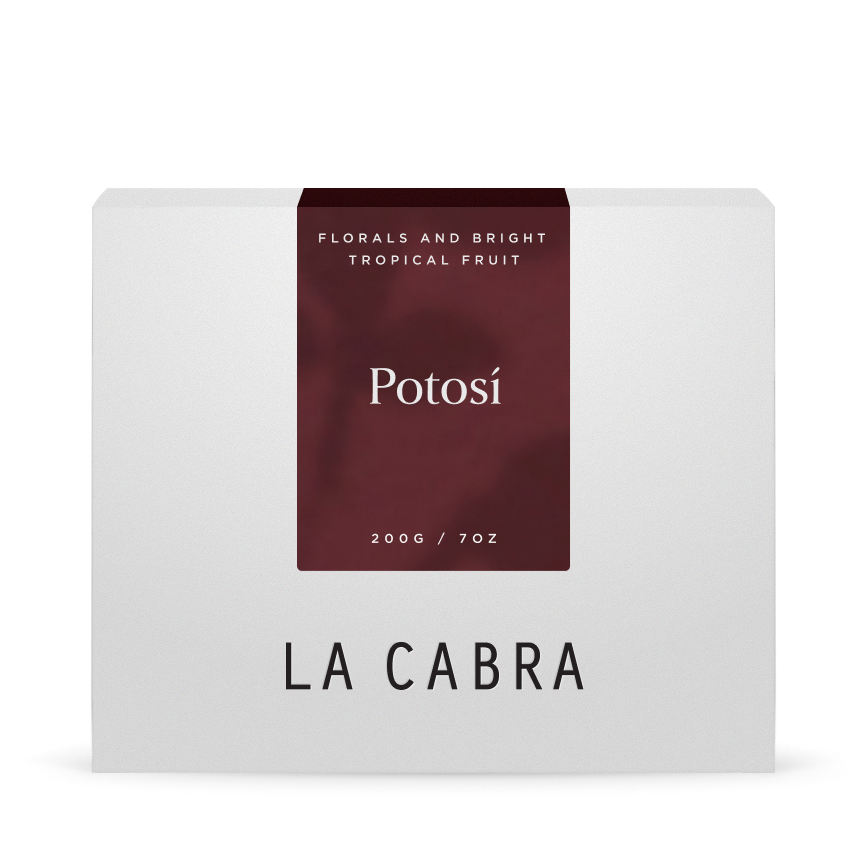
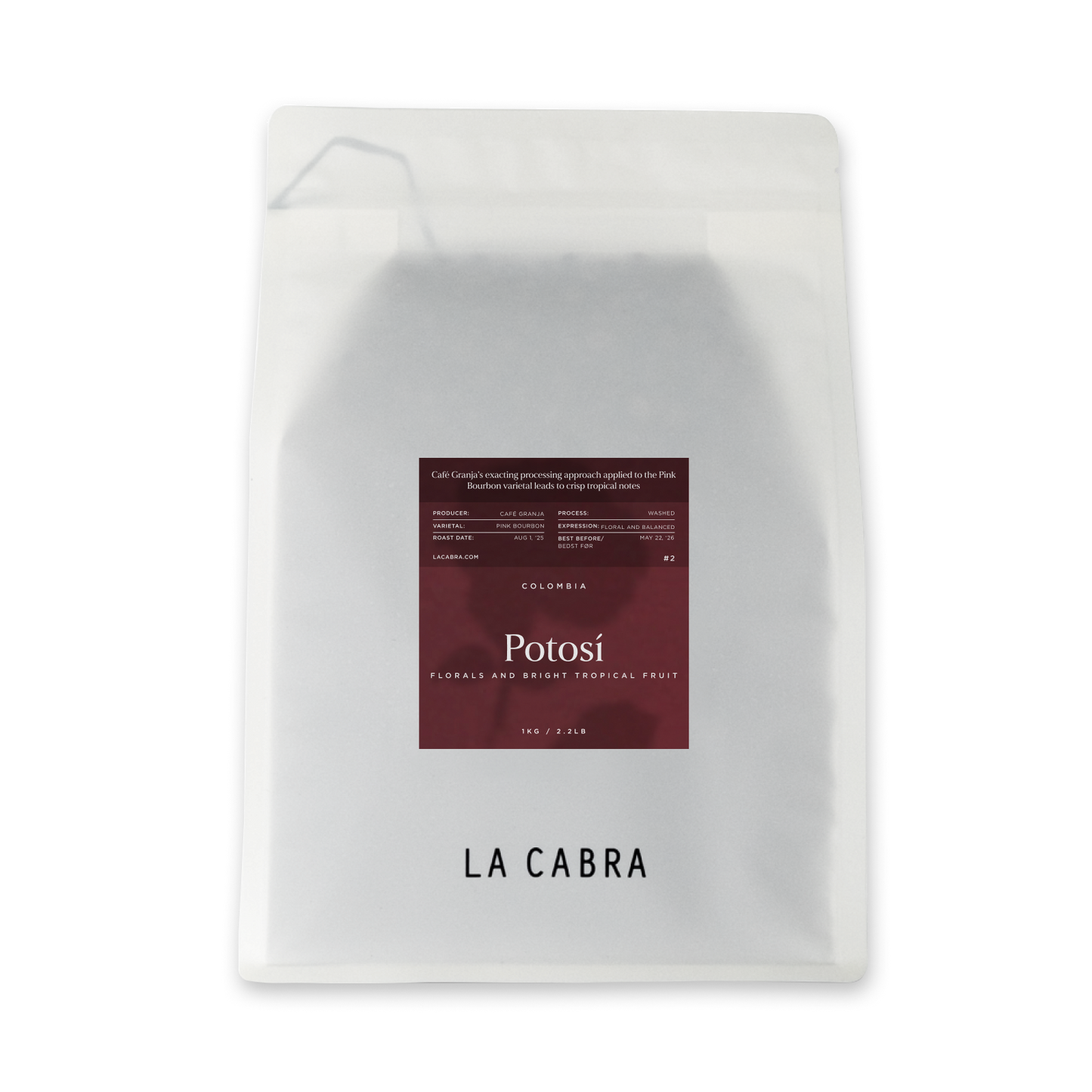
Potosí Washed
Finca Potosí is the original Granja farm, and one that we have come to hold dear over the years. We have visited the beautiful valley that forms the Las Margaritas and Potosí farms several times, and the natural XO lot from Potosí has become a stalwart in the La Cabra line-up. Pink Bourbon is a great example of the recent movement of the Colombian coffee industry.
Finding fame in Huila, but with Ethiopian heirloom genetics, it shows similar disease resistance and yield characteristics to hybrid varietals, while also exhibiting an exotic and floral flavour profile. As an industry of mainly small to medium farmers, with many export routes for all lot sizes, Colombia has a very agile coffee growing population, capable of producing many different flavour profiles and follow market demands quickly.

Pink Bourbon has taken Colombia by storm, now seen across the main producing regions. This Pink Bourbon is an excellent illustration of the reason why. Another washed process coffee, this lot was grown at Finca Potosí and processed at the state of the art wet mill shared with its neighbour Las Margaritas. The cherries are first fermented whole, for 24 hours, before being de-pulped and fermented for a further 36. This double fermentation seems to enhance the floral and tropical fruit aromatic character of the Pink Bourbon, creating a rich sweetness while holding onto the fresh citrus acidity, with a clear passionfruit character.
Café Granja La Esperanza
The Herrera family purchased Finca Potosí in 1945 and planted several varieties that were unusual for Colombia at the time, including yellow and red Bourbon. This started the Granja tradition of experimentation, leading to some recognition by other farmers in the Cauca Valley. The large family of 14 children did much of the work on the farm themselves, but two brothers took particular interest in coffee production, and in the late 1990’s, Rigoberto and Luis took over the family business and started the push towards what Granja is now. They purchased small farms to add to their portfolio, and began the process of converting all of their coffee growing to use organic farming practices. They also looked outside Colombia for further insight, and jumped at the opportunity to lease a small farm in Panama. Rigoberto moved, and his years of producing experience led to a lot of their Geisha winning the Best of Panama within 2 years.

When Rigoberto returned to Granja, he brought back not only experience, but Panamanian Geisha seeds.
These seeds were the foundation for the next stage of growth, beginning to chase distinct flavour profiles and the super high end specialty market. The experience of bringing a Panamanian varietal to Colombia was pivotal to Granja in their endeavour to adapt more exotic varietals to the Colombian soil, showcasing a wide view of the Cauca Valley terroir. They have also begun to experiment with unique processing, using open and closed tank fermentations to create incredible control over fermentation, for both their washed and natural coffees. They also use mechanical drying extensively, allowing very tight control over length and degree of drying. This type of fermentation results in very low water usage, compared especially to traditional washed processing. This is another of Granja’s core values, focussing on sustainability. They have also worked very hard on maintaining local floral and fauna, using waste products from the farm to fire their mechanical driers, and switching to organic farming methods.



